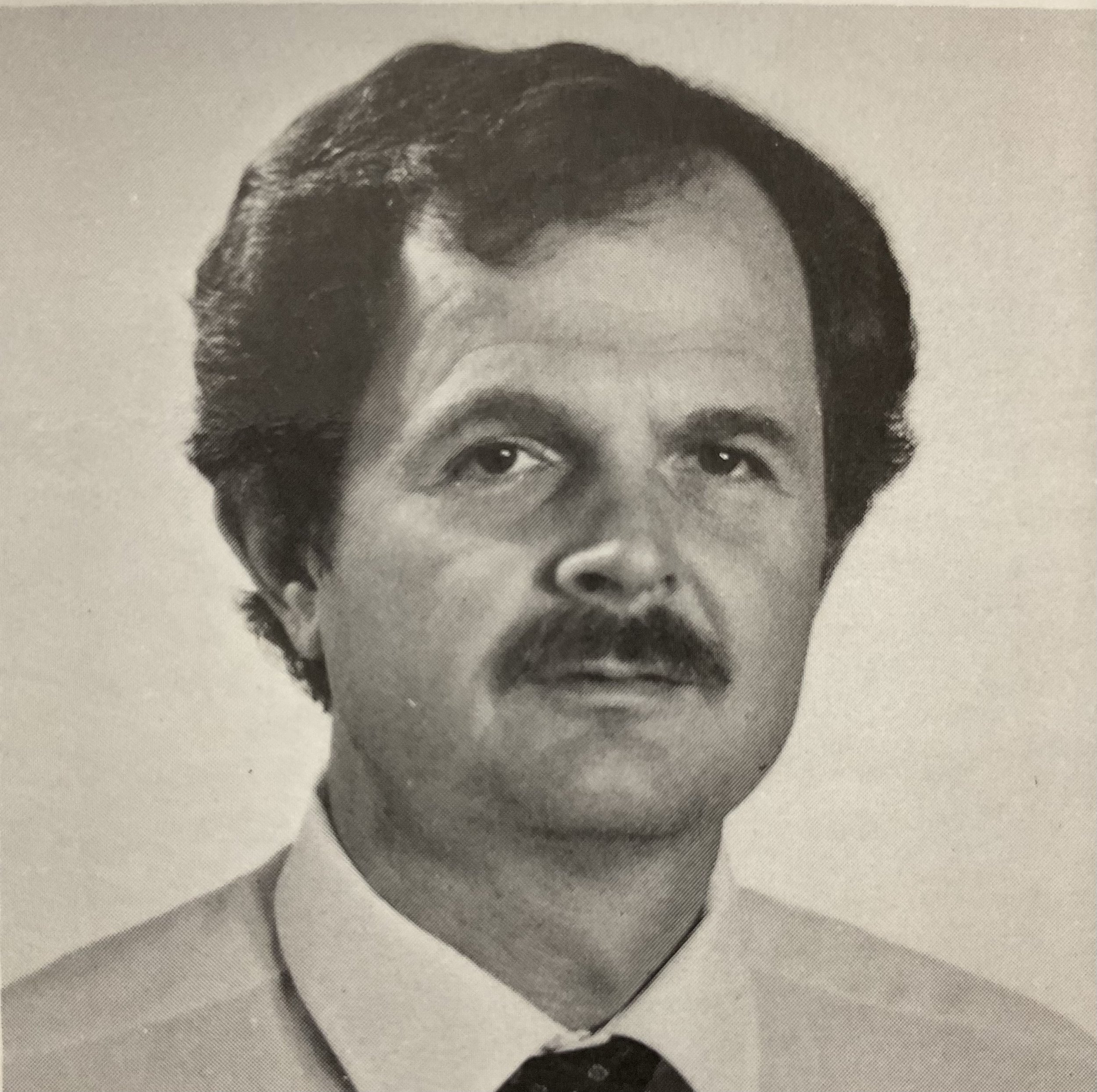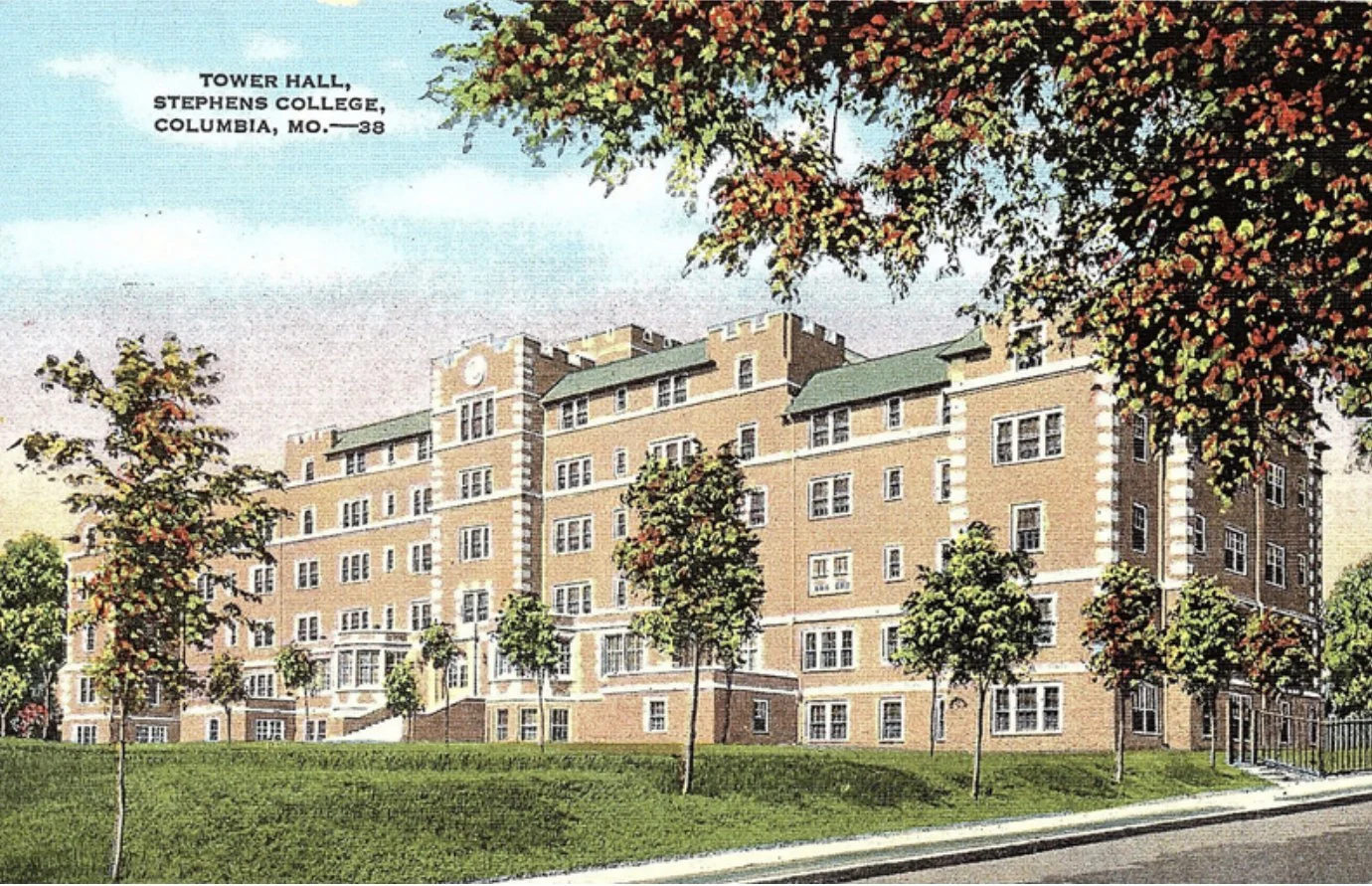Alan R. Havig and Tower Hall at Stephens College
On January 8, 2020, legendary local historian Alan R. Havig died at age 79, after contributing a massive body of work about American history. His over 50-year-long association with Stephens College, first as a professor, then college archivist, made him not only a primary source of information about that institution but a beloved teacher and Columbian. He joined the Stephens College faculty in 1967 after receiving his M.A. and Ph.D. in American history from the University of Missouri. He taught American history, American studies, and popular culture until his retirement in 2005. Upon which he became College Archivist for over 10 years. The Stephens College Archives were located in the basement of Tower Hall on the North Residential Quad. One of the most prominent buildings on campus, Tower Hall, opened in 1938, and continues to be a dormitory in 2023. The Stephens College Archives were moved to the main Stephens Library Building and dedicated as the “Dr. Alan R. Havig Archives” on Aug. 15, 2019, in recognition of his long service.
Dr. Havig circa 1984
As pictured in the dustjacket of An Illustrated History of Columbia
From the private collection of Matthew Fetterly
Outside of his long career as a teacher, Dr. Havig authored three important books on Columbia history, in addition to many other publications. The first, From Southern Village to Midwestern City: An Illustrated History of Columbia, was published in 1984. The second, “It’s a proud business”: A History of the Shelter Mutual Insurance Companies, was published in 1995. The third, and perhaps most daunting to write, is a 260-page history of historians, A Centennial History of the State Historical Society of Missouri, 1898-1998, and was published in 1998. These are just his full-length books directly relevant to Columbia history. He also published Fred Allen’s Radio Comedy in 1990, about the popular humorist from the Golden Age of Radio. As a member of the State Historical Society of Missouri, he was on the editorial advisory board for the Missouri Historical Review from the 1980s until 2017. He also edited the anthology Filling Leisure Hours: Essays from the Missouri Historical Review, 1906–2006.
In 2014 the Columbia Daily Tribune described Dr. Havig as “a quiet man, Alan is one of those folks who serve as foundation stones for making Columbia the diverse cultural center it is today. But he's hardly a household name.”
Vintage Postcard of Tower Hall from the Southwest
From Joan Crawford's Columbia, Missouri Stephens College and City (fall 1922)
Dr. Havig worked in the historic Tower Hall, but contributed greatly to the preservation of other historic Columbia buildings. He prepared the National Register of Historic Places nomination forms for the Stephens College South Campus Historic District and David Gordon House and Collins Log Cabin. The Gordon House stood in what is now Stephens Lake Park and was destroyed by arson in the early 1990s. The Collins Log Cabin was moved to the Village of Boone Junction at the Boone County History and Culture Center. Despite demolition of the old auditorium, the South Campus Historic District makes up the historic core Stephens College as we know it in 2023.
This CoMo 365 blog entry was constructed by Matt Fetterly using these sources:
Crighton, John Clarke (1970). Stephens: A Story of Educational Innovation. OCLC 75075
Havig, Alan R. (1984). From Southern Village to Midwestern City: An Illustrated History of Columbia. Woodland Hills, California: Windsor Publications. ISBN 9780897811385.
Havig Alan R. (1995). "It's a Proud Business" : A History of the Shelter Mutual Insurance Companies 1946-1996. Virginia Beach, Virginia: Donning. IBSN 9780898659566.
Havig, Alan R. (1998). A Centennial History of the State Historical Society of Missouri, 1898-1998. Columbia, Missouri: University of Missouri Press. ISBN 9780826211699.
Tribune Staff Writer (Febuary 4, 2014). Havig House is Filled With History. Columbia, Missouri: Columbia Daily Tribune. Accessed January 8, 2023.
Memorial Funeral Home Obituary (March 9, 2020). Alan Havig, Aug. 26, 1940 — Jan. 8, 2020. Columbia, Missouri: Columbia Missourian. Accessed on January 8, 2023.
Do you have ideas for future CoMo 365 topics? Did you notice an error?
Email me at como365@protonmail.com or leave a comment below.


